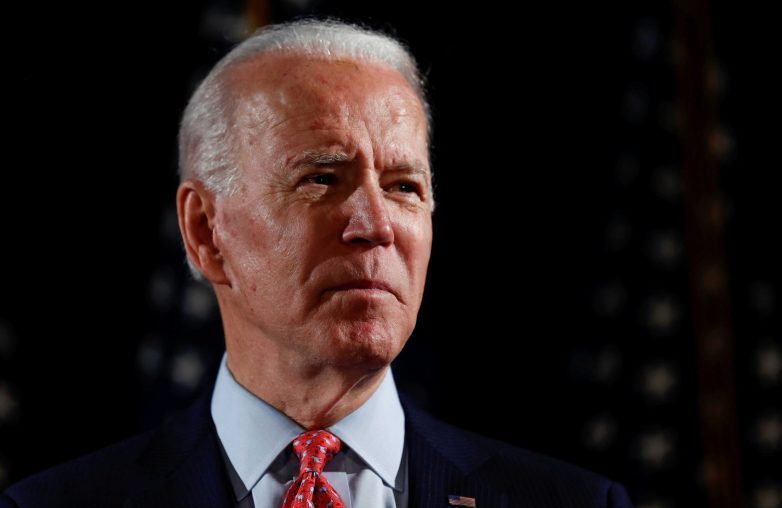WASHINGTON: President Joe Biden, in a televised ceremony, has signed three executive orders to establish a task force to locate migrant families separated under the Trump administration, reshape U.S. border and asylum policy and review restrictions made to the legal immigration system over the past four years.
“There’s a lot of talk, with good reason, about the number of executive orders I’ve signed. I’m not making new law. I’m eliminating bad policy,” Biden told reporters in the White House on Tuesday.
“What I’m doing is taking on the issues that, 99 percent of them, that the last President of the United States issued executive orders I thought were counterproductive to our national security, counterproductive to who we are as a country, particularly in the area of immigration,” he added.
One order established an inter-agency government task force led by the secretary of homeland security that will be charged with identifying all migrant children who were separated from their parents during the Trump administration’s “zero tolerance” border crackdown and earlier pilot programs.
Another responsibility for the task force will be to facilitate the reunification of families who remain separated. Advocates who have been working to track down separated families for over two years have yet to locate the parents of more than 600 children. Many of those parents were deported to Mexico and Central America without their children.
Another order directs agencies to undertake their own sweeping review of asylum policy in the U.S.
The orders nix a number of Trump immigration executive orders while directing the Department of Homeland Security to review policies that require immigrants to wait in Mexico while filing asylum claims and limit the opportunity to apply for asylum to those who passed through other countries in trying to reach the U.S.
It also outlines two prongs for dealing with migration patterns: a “root causes” strategy that primarily focuses on aid to El Salvador, Honduras and Guatemala and a “collaboration strategy” to expand pathways for those fleeing those countries to access resources in neighboring ones.
But it also opens more opportunities for people leaving those countries to join family members in the U.S. and suggests the Biden administration will expand the criteria for allowing people to apply for asylum in the U.S.
It requires evaluating “whether the United States provides protection for those fleeing domestic or gang violence” — a nod to those who have been denied asylum because they don’t fit into current protections for those fleeing racial, religious or political persecution.
A final order directs a review of Trump’s public charge rule, which limited immigration opportunities for those who might need to rely on assistance such as food stamps or other social programmes.
The White House earlier in the day acknowledged the potential complications of reforming the immigration system at a time when migrants could seek to flee to the United States in search of safety and economic stability.
“We want to put in place an immigration process here that can — that is humane, that is moral, that considers applications for refugees, applications for people to come to — into this country, at the border, in a way that treats people as human beings,” press secretary Jen Psaki said. “That’s going to take some time. It’s not going to happen overnight.”
Biden’s orders drew rebukes from conservative groups, which raised concerns about implementing changes to the immigration process in the middle of a pandemic and economic slowdown.
Asked about sweeping restrictions on immigrant and work visas that Mr. Trump enacted on economic grounds last year, a Biden administration official said more proclamations will be issued in the future. Last week, White House Domestic Policy Council Deputy Director Esther Olavarria told U.S. mayors that the president intended to rescind the restrictions, but did not offer a timeline.
On Inauguration Day, Biden ordered a quick halt to border barrier construction, rescinded Trump’s travel and immigration limits on several African and majority Muslim countries and instructed the Department of Homeland Security to protect an Obama-era program that provides work permits and deportation relief to more than 640,000 undocumented immigrants brought to the U.S. as minors.
His administration also announced a 100-day pause on most deportations from the U.S. But the moratorium, a key campaign pledge, was later suspended by a federal judge overseeing a legal challenge mounted by Texas.
Follow the PNI Facebook page for the latest news and updates.









